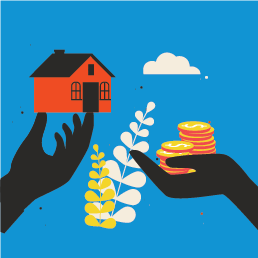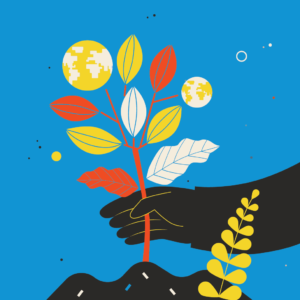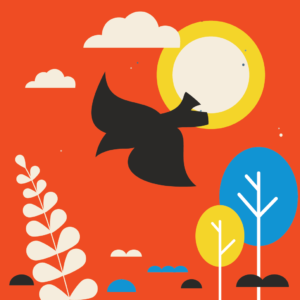Housing, Affordability and Livability
The findings in Phase 1 and 2 of the Moving Mountains Initiative revealed ‘Housing, Affordability and Livability’ as a high opportunity area for collaborative solution building. The Initiative findings revealed high interest and opportunity in civil society to work collaboratively together on solutions that,
- Help create sustainable local food systems that are collaborative, healthy, socially-just, diverse, and accessible. Help build up collaborative food system practices and solutions that are based in regional economies, respect for the earth and the environment.
- Help address the changing nature of affordability and livability in the Bow Valley, supporting collaborative solutions that meet the needs of Bow Valley residents in an effective and practical manner. Support a diversity of affordable and livable housing solutions with a well-informed foundation that is inclusive of diverse housing perspectives and voices.
In Phase 3 of the Initiative, a Learn and Try Group was activated to address these issues. The group initially approached the broad topic of ‘housing, affordability, and livability’ as interconnected issues with interconnected solutions. Shortly into collaborative dialogues, the group self-organized into two cohorts – one group holding focus on food, affordability and livability in the Bow Valley, and the other holding focus on housing, affordability and livability in the Bow Valley. The Moving Mountains Initiative provided financial, administrative, and human resource support to these two Learn and Try Groups, supporting the prototyping and business model development of a mobile field kitchen concept that repurposes rescue foods within and across the Bow Valley, and support for the early-stage business plan development and formation of a community land trust.
Housing
In the Moving Mountains Initiative, we heard that housing is both ‘a civil society issue’ and that housing ‘is not a civil society issue’. In the findings of the initiative, ‘affordable housing’ revealed itself as a TOP concern amongst those who identified as ‘part of civil society’. It also tracked as having the LOWEST empowerment levels - in other words, while a top civil society challenge, our data revealed the sector feels highly disempowered to do anything about it. This correlates with our observation that voices on this issue are despairing and can spark frustration among those who are looking for change, working hard to find solutions, and taking action. The Learn and Try Group that focused on Housing,identified the controversial, emotionally charged nature of the crisis in the Bow Valley, and worked within this discomfort. The group identified a need for a Bow Valley non-profit entity that can funnel social dollars and donations to the real estate industry to empower solving immediate and long term industry problems. This group advanced the formation of a community land trust. Community Land Trusts (CLTs) are community led, non-profit organizations which acquire and hold land in the interest of their local community. They operate on a variety of scales choosing to represent either neighbourhoods, cities, or regions and are are long-term stewards of affordability, which work to ensure perpetually affordable housing, and to secure space for high social-benefit non-profit enterprises
Food
In the work of the Affordability, Livability and Food group, the group identified that while many people in civil society are aware of food insecurity in the Bow valley, especially those working in this area in civil society or who bring lived experience of the issue, there is low awareness of these issues among most of Bow valley residents. The group also identified that while many strong and impactful food security programs exist in the Bow Valley, there is a lack of daily consistency across the food support programs, and thus a gap for those who experience food insecurity on a daily basis. To address these issues, this group advanced the business model development of a mobile field kitchen concept, a program intended to complement existing food support initiatives in the Bow Valley, by providing flexible food support to the community on days of the week when the community experiences gaps. The social enterprise concept involves repurposing rescue foods within the Bow Valley, and offering low cost soups, stews, chilis and chowders across the region through use of a mobile field kitchen or food truck. This group prototyped their social enterprise concept as part of the Moving Mountains Gather and Share on March 24, 2023 - serving over 150 civil society sector participants with delicious food for the belly and soul. The prototyping led to key learnings about next steps towards this innovative food security social enterprise concept.
Centering equity-deserving voices and amplifying voices not often heard are key principles of Moving Mountains. The initiative worked within a co-leadership model, and the leadership team held themselves accountable to including and amplifying youth, seniors, 2SLGBTQ+ and IBPOC communities in the Bow Valley.
Sage Shepherd is a young local videographer who has captured stories and learning of the Moving Mountain’s collaborative work on the ground, bringing a young person’s perspective and approach to the initiative’s work. As a community organizer, social entrepreneur, videographer and children’s programmer in the Bow Valley, her experience touches many intersections of Bow Valley civil society. View Sage’s conversation with Learn and Try Group Lead, Cathy Hagans below, and learn more about Sage here: https://www.facebook.com/ALLtheRageSAGE/about





